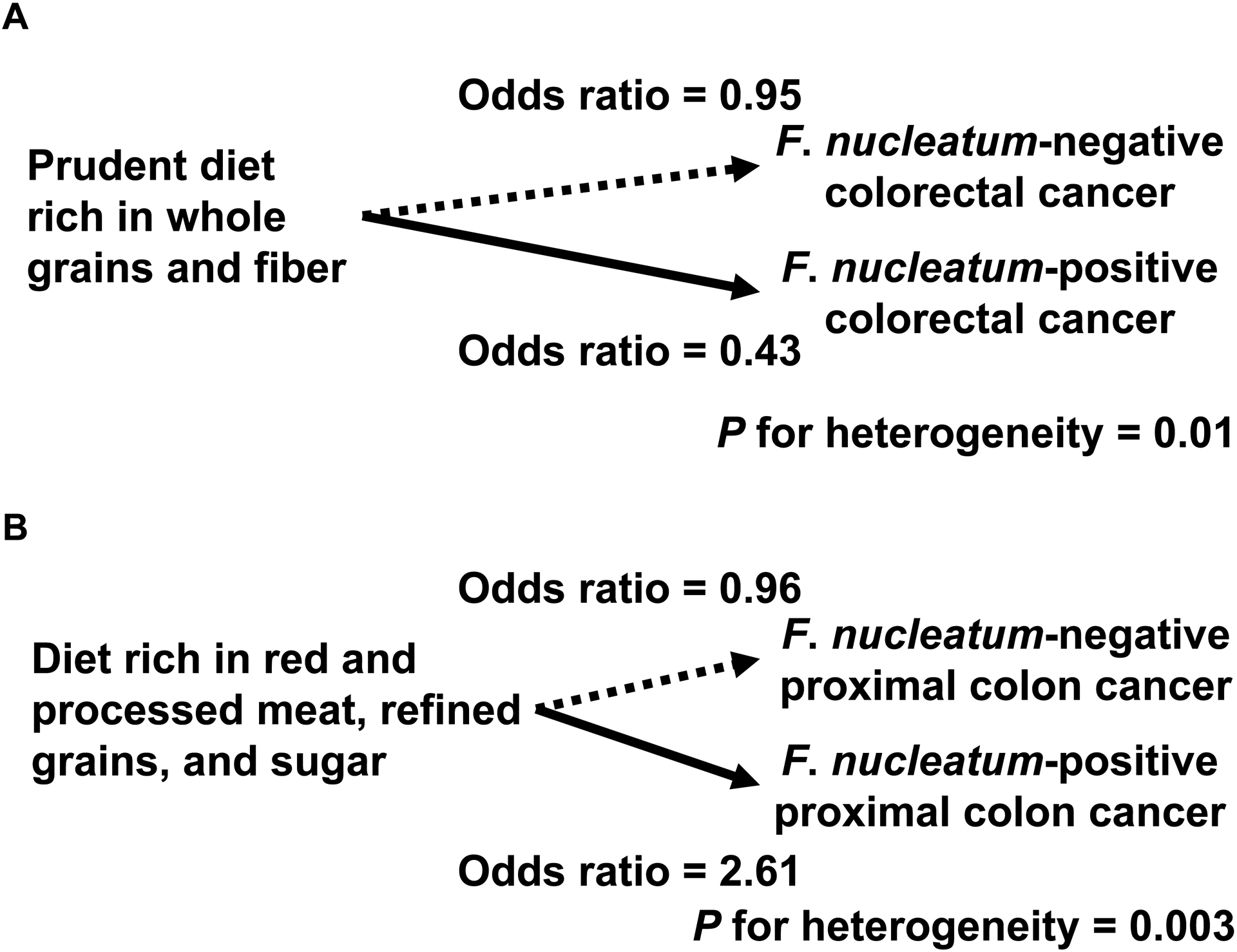Fig. 2.

Illustration of the microbiome-MPE approach using tumor microbial status. Fusobacterium nucleatum can inhibit antitumor immune response and potentiate colonic neoplasia development in animal models. Using data on colorectal cancer cases and tumor microbial profile in two U.S. nationwide prospective cohort studies (the Nurses’ Health Study and the Health Professionals Follow-up Study), the microbiome-MPE studies have revealed that a so-called prudent diet that is rich in whole grains and fiber was associated with a lower risk of colorectal carcinoma with detectable levels of Fusobacterium nucleatum but not with a lower risk of carcinoma without Fusobacterium nucleatum (A), and that an inflammatory dietary pattern (rich in red and processed meat, refined grains, and sugar) was associated with a higher risk of Fusobacterium nucleatum-positive colorectal carcinoma, but not with a risk of Fusobacterium nucleatum-negative carcinoma (B).
